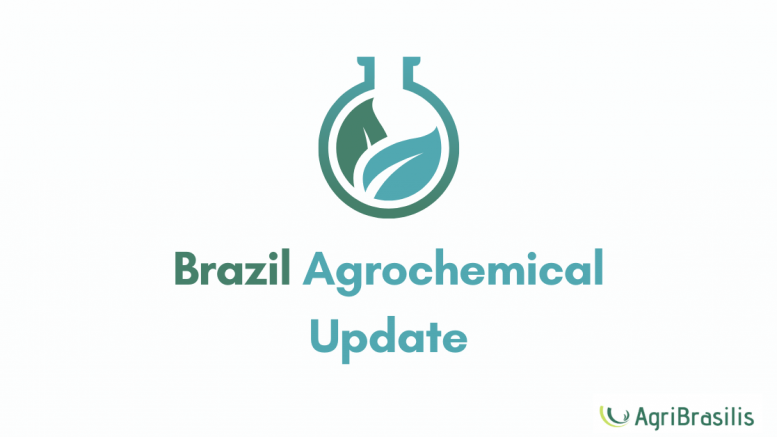MAPA approves registrations of 46 formulated pesticide products
Civil Police of the State of Mato Grosso do Sul seized in the city of Deodápolis a truck carrying more than 570 gallons of 20 L of pesticides, an amount of US$ 390 thousand, coming from Ponta Porã, State of Mato Grosso do Sul. (Civil Police of Mato Grosso do Sul)
Nutrien announces acquisition of Safra Rica, the eighth in Brazil in three years. Safra Rica was founded 19 years ago in Monte Azul Paulista, State of São Paulo, focused on the sale of fertilizers and also started to sell pesticides and other solutions for farmers in the northwest region of the States of São Paulo and Minas Gerais. Company has nine retail units. Value of the deal, that still needs to be approved by the Administrative Council for Economic Defense, was not informed. With Safra Rica, Nutrien now has 200 commercial sites in Latin America. (Nutrien)
Price of fertilizers is the main challenge for tomato growers in the State of Paraná. Farmers disbursements with fertilizers represent 21% of their revenues. Next are the phytosanitary products and the payment of interest from the crop costing operation, with 8.7% of revenue. (Confederation of Agriculture and Livestock of Brazil)
Falling urea prices may benefit corn second-season. According to Rabobank’s input analyst Bruno Fonseca, the fall in natural gas prices in Europe should increase nitrogen production. “We have been observing a drop of natural gas costs and a possible resumption of the production of nitrogen fertilizers in Europe, that has made the market a little less volatile in relation to new demands. Urea is an important nitrogen fertilizer for the cereal, and there was a reversal of the upward trend that was observed a month ago”, says Fonseca. (Rabobank)

São Carlos Institute of Chemistry from the University of São Paulo, in partnership with Embrapa Instrumentação, performs research on creation of a new nanometric coating with styrofoam to promote controlled release of fertilizers in agriculture. More sustainable and cheaper than current materials, the technology can contribute to reduce environmental impacts, in addition to giving styrofoam a more suitable destination. (USP; Embrapa)
Anvisa releases a technical note regarding procedures for registration of phytochemical products, whose ingredients are obtained from plant raw materials. They are an option in the integrated management of pests and favor more sustainable and less risky means of control. Anvisa, MAPA and Ibama are developing a specific rule to regulate registration of these products. (Anvisa)
Adubo Real is building a manufacturing site in Mogi Mirim, State of São Paulo, that should start operations in the 2nd half of 2023. Expected annual revenue of US$ 77.21 million and production of 160 thousand tonnes of fertilizer per month. Investment will be US$ 7.7 million. (Real Fertilizer)
In the next legislature, the “ruralist bench” (congressmen that are aligned with agribusiness) will prioritize approval in the Senate of PL 2699, that changes environmental licensing rules and makes the approval of pesticides more flexible, according to federal deputy Arnaldo Jardim, a member of the Agricultural Parliamentary Front. (FPA)
MAPA approves registrations of 46 formulated pesticide products. Among them, 18 are low-impact, six of which are for organic farming. Low toxicity product with new active ingredient Phthorimaea operculella granulovirus to control the tomato pinworm (Tuta absoluta). Two products are silverleaf whitefly (Bemisia tabaci race B) control in soybean based on the new active ingredient Cinnamomum verum essential oil. (Ministry of Agriculture)


READ MORE:

